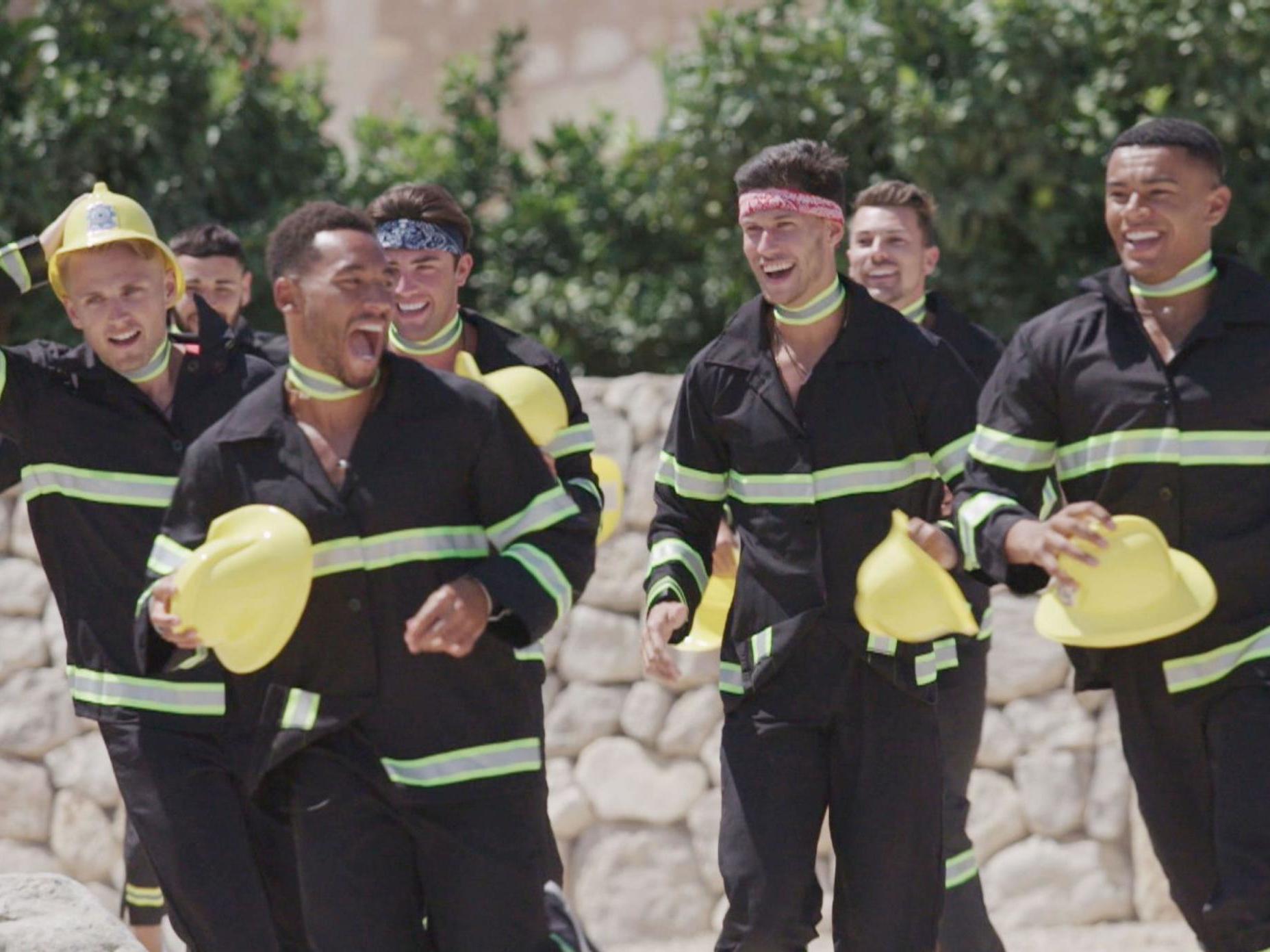Love Island's 'sexist' portrayal of firefighters puts women off joining profession
‘It reinforces the misconception that all firefighters are musclebound men’

Women are being deterred from training to become firefighters due to the “sexist” and stereotypical way in which they’re depicted in the media, new research has found.
In July, reality show Love Island was heavily criticised by the London Fire Brigade for its "fireman challenge", which saw the male contestants dress up as firefighters and strip before ‘saving’ their female partners.
A recent survey conducted by YouGov and commissioned by the mayor of London has discovered that a quarter of women believe that men would be more adept as firefighters.
The 534 women and 508 men who participated in the poll were asked: “Do you think men are more able to do the job, women are more able to do the job, or they are both equally able?”
Following the results of the poll, London Fire Commissioner Dany Cotton is urging shows such as Love Island and advertisers to stop perpetuating sexist clichés about firefighters, as it has the potential to put women off joining the profession.
“When popular shows like Love Island roll out every offensive cliché possible with their so-called ‘fireman challenge’, it reinforces the misconception that all firefighters are musclebound men. No wonder so many young women are put off by that,” she says.
In addition to Love Island, other recent examples where firefighters have been depicted in the media in a stereotypically masculine way include a 2017 Suzuki advert, which saw Ant and Dec refer to "fireman training", and a 2013 advert for Harpic toilet cleaner, which saw a woman ogle a male firefighter.
The London Fire Brigade has announced its support for the Advertising Standards Authority’s initiative to ban sexist advertising, which states that adverts “must not include gender stereotypes that are likely to cause harm, or serious or widespread offence.”
Furthermore, in October last year the brigade launched its “#FirefightingSexism” campaign in an effort to encourage people to stop using the term “fireman” and opt for “firefighter” instead.
Out of 5,000 firefighters working in the London Fire Brigade, approximately 300 are women, making up a mere six per cent of the workforce.
“It was 30 years ago that people were shocked to see women police officers and it’s frankly embarrassing that the public are still shocked to see women firefighters today,” says Cotton.
“The armed forces and the police force have all been enriched by having women better represented across their ranks and it’s time the fire and rescue service caught up.
“Now it’s time for advertisers, journalists and marketers to stop relying on lazy clichés and help change attitudes which will in turn encourage more women to embark on a wonderful and fulfilling career in the fire service.”
The YouGov poll was carried out in June last year and released today.
Join our commenting forum
Join thought-provoking conversations, follow other Independent readers and see their replies
Comments
Bookmark popover
Removed from bookmarks